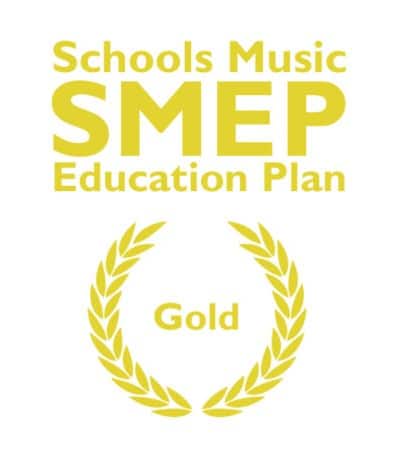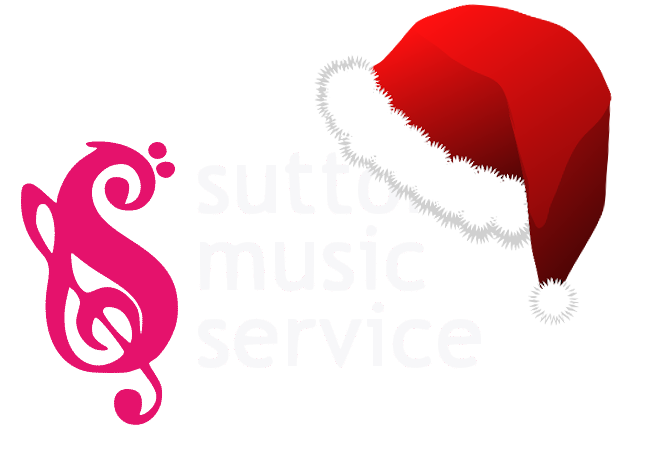Who is this for?
This simple self-evaluation tool is designed to help music leaders in primary and secondary schools reflect on their current music provision and provide prompts for future development plans.
It is best used collaboratively with music leaders and line managers to support a conversation on the development of music within your school. This tool is free to use and not a mandatory requirement. We hope you find it helpful and enjoy using it. If you have any questions, suggestions or feedback, please email us at: hello@suttonmusictrust.org.uk.
With thanks to Tri-Borough Music Hub for their support with this document.

How to use this tool?
Read the criteria for each of the three categories below – bronze, silver, and gold – and consider what evidence or examples you have to answer each of the questions. You will likely be able to answer questions from multiple categories. However, to achieve the bronze certificate, you need to be able to answer all of the questions in that category. To complete the silver certificate, you need to be able to answer all of the questions in the bronze and silver categories, etc.
Schools can inform Sutton Music Trust of their self-evaluation outcome in the Annual Data Return survey sent to schools each summer. SMEP certificates will be sent to headteachers in the autumn term.
Table of Contents
Self-evaluation for Nurseries
Bronze
(Standard expectation for all settings)
- Is there a member of staff responsible for leading and developing music?
- Do all staff understand the importance of a strong foundation of music and how it fits into all areas of Early Years provision?
- Is there a clear plan for music provision?
- Is music provision and progress assessed?
- Are children given regular access to musical instruments and resources?
- Is there music making and/or singing on a daily basis?
- Are children given regular opportunities to move freely to recorded/live music?
- Are children given regular opportunities to listen to recorded/live music?
- Is music making documented/recorded?
- Are parents/carers included in their child’s musical journey, e.g. with updates or consultation?
Silver
(Builds upon Bronze)
- Does the member of staff responsible for music access CPD opportunities?
- Are different musical environments available to pupils, e.g. in the classroom and playground?
- Does the planning support and encourage child-led music making?
- Is music making differentiated to challenge all abilities in the setting?
- Do staff know how to recognise and support spontaneous music making/singing?
- Are children given regular opportunities to listen to recorded/live music from different genres and cultures?]
- Is music making documented/recorded using a range of mediums?
- Are children able to express their feelings and ideas through playing and movement?
- Are the musical interests of the children taken into account?
- Are staff confident in leading call-and-response songs?
Gold
(Builds upon Silver)
- Does music play an important role in the Early Years setting
- Are staff confident in leading pitch-matching games?
- Does the member of staff responsible for leading music access CPD in the local area?
Self-evaluation for Primary Schools
Bronze
(Standard expectation for all settings)
- Is the school’s leadership familiar with the National Plan for Music Education (2022) and its objectives for music education?
- As the National Plan for Music Education specifies, will your school have a Music Development Plan by September 2023?
- Is there an assigned teacher responsible for leading and developing music, e.g., a Music Coordinator?
- Do pupils have access to both rhythmic and melodic instruments?
- Do pupils receive a minimum of one hour of music teaching per week? This hour may take the form of short sessions spread across the week.
- Is there a clear music curriculum vision? (Intent)
- Do the pupils follow the Model Music Curriculum (MMC) or a curriculum that is at least as ambitious as the MMC? (Implementation)
- Are there curriculum overviews and schemes of work in place?
- Is the learning accessible, and do the pupils receive the appropriate level of challenge?
- Is musical progress assessed? (Impact)
- Can the pupils talk about their learning using some music vocabulary and discuss musical concepts or styles?
- Are there regular whole-school, key stage, and/or year group singing assemblies?
Silver
(Builds upon Bronze)
- Does the assigned teacher responsible for leading and developing music engage with Sutton Music Trust?
- Is there a school governor with responsibility for music?
- Is learning differentiated to challenge all abilities?
- Do specialist external providers lead projects in the school to enhance the music provision?
- Do you capture and store audio/video assessment evidence?
- Can the pupils talk confidently about their learning using music vocabulary and discuss musical concepts and styles?
- Are there regular extra-curricular vocal, instrumental, and/or music technology-based opportunities available?
- Are there musical performance opportunities available to pupils, both in and out of school?
- Are there opportunities for pupils to have a small group or individual vocal or instrumental lesson?
- Does the school engage with Sutton Music Trust’s CPD opportunities, e.g., attending termly Primary TeachMeets, etc.?
Gold
(Builds upon Silver)
- Can all teachers delivering music in the school clearly articulate the curriculum vision and explain how the learning has been sequenced to develop skills and knowledge?
- Are projects led by external specialist providers linked to the curriculum?
- Are there systems to share best work and practice with all teachers responsible for delivering music?
- Can the pupils communicate articulately about music using appropriate vocabulary in a meaningful way?
- Does the school engage in Sutton Music Trust’s activities and events?
- Are there regular music performance opportunities both in and out of school?
- Does music play an important role in the life and ethos of the school?
- Does the school signpost pupils to external musical opportunities?
- Does the school lead music CPD sessions for their teachers and/or support the development of music in other schools?
Self-evaluation for Secondary Schools
Bronze
(Standard expectation for all settings)
- Is the school’s leadership familiar with the National Plan for Music Education (2022) and its objectives for music education?
- As the National Plan for Music Education specifies, will your school have a Music Development Plan by September 2023?
- Is there an assigned teacher responsible for leading and developing music, e.g., Subject Leader?
- Do pupils receive a minimum of one weekly period of music the whole way through Key Stage 3?
- Is there a clear music curriculum vision? (Intent)
- Do the pupils follow the Model Music Curriculum (MMC) or a curriculum that is at least as ambitious as the MMC? (Implementation)
- Is the learning accessible, and do the pupils receive the appropriate level of challenge?
- Do specialist external providers occasionally lead projects in the school to enhance the music provision?
- Is musical progress assessed and audio/video assessment evidence captured and stored? (Impact)
- Can the pupils talk about their learning using some music vocabulary and discuss musical concepts or styles? (Impact)
- Is there at least one regular school choir or instrumental ensemble opportunity, which is run by a member of music department staff?
- Are there regular whole-school, key stage and/or year group singing assemblies?
- Is there is a music provision offer beyond KS3, e.g., GCSE, RSL Awards or BTEC?
Silver
(Builds upon Bronze)
- Does the assigned teacher responsible for leading and developing music engage with Sutton Music Trust?
- Is there a school governor with responsibility for music?
- Is learning differentiated to challenge all abilities?
- Can the pupils talk confidently about their learning using music vocabulary and discuss musical concepts and styles?
- Are there a range of regular extra-curricular vocal, instrumental, and/or music technology-based opportunities available?
- Are there musical performance opportunities available to pupils, both in and out of school?
- Are there opportunities for pupils to have a small group or individual vocal or instrumental lesson?
- Does the school engage with Sutton Music Trust’s CPD opportunities, e.g., attending termly Secondary TeachMeets, etc.?
Gold
(Builds upon Silver)
- Can all teachers delivering music in the school clearly articulate the curriculum vision and explain how the learning has been sequenced to develop skills and knowledge?
- Are projects led by external specialist providers linked to the curriculum?
- Are there systems to share best work and practice with all teachers responsible for delivering music?
- Can the pupils communicate articulately about music using appropriate vocabulary in a meaningful way?
- Does the school engage in Sutton Music Trust’s activities and events?
- Are there regular music performance opportunities both in and out of school?
- Does music play an important role in the life and ethos of the school?
- Does the school signpost pupils to external musical opportunities?
- Does the school lead music CPD sessions for their teachers and/or support the development of music in other schools?
Self-evaluation for SEND Schools
Bronze
(Standard expectation for all settings)
- Is there an assigned teacher responsible for leading and developing music, e., a Music Coordinator?
- Is the school’s leadership familiar with the National Plan for Music Education (2022)and its objectives for music education?
- Do all staff understand the importance of a strong foundation of music and how it fits into all areas of its school’s provision?
- Does your school have a Music Development Plan?
- Do the pupils follow the Model Music Curriculum (MMC)or a curriculum that is at least as ambitious as the MMC? (Implementation)
- Is music provision and progress assessed?
- Do pupils have access to both rhythmic and melodic instruments, as well as other music resources?
- Do pupils receive the appropriate level of challenge?
- Is there music making and/or singing on a daily basis? This could include whole-school assemblies, for example.
- Are children given regular opportunities to move freely to recorded/live music?
- Are children given regular opportunities to listen to recorded/live music?
- Is music making documented/recorded?
- Are parents/carers included in their child’s musical journey, e.g. with updates or consultation?
Silver
(Builds upon Bronze)
- Does the member of staff responsible for music access CPD opportunities?
- Does the assigned teacher responsible for leading and developing music engage with Sutton Music Trust?
- Are different musical environments available to pupils, e.g. in the classroom and playground?
- Is learning differentiated to challenge all abilities?
- Does the planning support and encourage child-led music making?
- Is music making differentiated to challenge all abilities in the setting?
- Do staff know how to recognise and support spontaneous music making/singing?
- Are children given regular opportunities to listen to recorded/live music from different genres and cultures?
- Do you capture and store audio/video assessment evidence?
- Are children able to express their feelings and ideas through playing and movement?
- Are the musical interests of the children considered?
- Are there regular extra-curricular vocal, instrumental, and/or music technology-based opportunities available?
- Are there musical performance opportunities available to pupils, both in and out of school?
- Are staff confident in leading call-and-response songs?
Gold
(Builds upon Silver)
- Can all teachers delivering music in the school clearly articulate the curriculum vision and explain how the learning has been sequenced to develop skills and knowledge?
- Are staff confident in leading pitch-matching games?
- Is the member of staff responsible for leading music access CPD in the local area?
- Does the school signpost pupils to external musical opportunities?
- Are there regular music performance opportunities both in and out of school?
- Does music play an important role in the life and ethos of the school?
- Are there systems to share best work and practice with all teachers responsible for delivering music?


